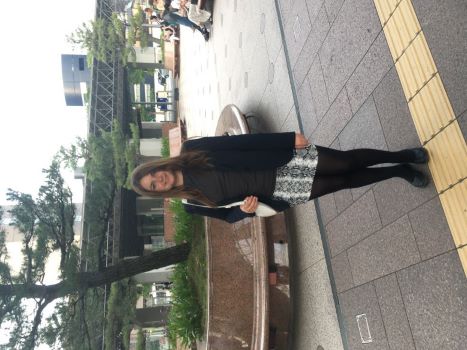Mary Thomas case study

"The wide and varied application to real-world samples and problems has motivated me to pursue a research career in analytical science”
The Lubrizol-funded PhD student on applying a passion for energy and the environment to petroleomics and greener oceans.
The shipping industry is a major polluter. The International Maritime Organisation (IMO) has implemented a restriction of 0.5 % sulfur content in marine heavy fuel oils (HFOs), to reduce emissions. HFOs, produced from the residual cuts of crude oil, are extremely complex mixtures with a high concentration of asphaltenes: polycyclic aromatic hydrocarbon molecules which sometimes also contain heteroatoms such as nitrogen and sulfur. The presence of such species can cause catalyst fouling, inhibit desulfurization, and limit chemical conversion. Furthermore, the desulfurization process alters the composition, properties, and reactivity of HFOs leading to undesirable black paint formation in marine engines. Reformulation of additive packages designed to stabilise against asphaltene deposition may be required to ensure optimum performance. And that’s where I come in.
Ultra-high resolution mass spectrometry allows molecular-level profiling of HFOs, and their asphaltene fractions, to elucidate differences that may underly bulk properties, and identify transformations that may result from desulfurization processes. The characterization of petroleum-related samples using such techniques is an area of research is known as petroleomics. I’ve always been most passionate about energy and the environment. The wide and varied application to real-world samples and problems has motivated me to pursue a research career in analytical science.
The opportunity to study a range of petroleum-related samples of the most pressing and immediate industrial interest, initially as proof-of-concept studies, as part of a leading research group, meant the Lubrizol-funded PhD appealed instantly. Seeing the importance and impact of my findings and having regular feedback from an industry-based supervisor meant that the work undertaken continued to feel relevant, with fluid research directions adjusted accordingly at each stage.
One of the most enjoyable aspects of PhD research is that each day is different:
- Isolating asphaltene fractions in the wet lab
- Performing experiments using state-of-art instrumentation
- Analyzing data
- Interpreting results
- Preparing presentations and reports, and having the freedom to suggest and plan the next step
The development of softer skills has proved paramount when attending national and international conferences targeted at a range of disciplines, allowing new and existing collaborations and future research projects to develop, maximising further career development opportunities.
The biannual university contacts meeting provides a regular opportunity to present results in both poster and oral formats, and to develop the skills necessary to communicate industrially relevant findings to a broad audience. The continued and regular contact provided through these producing these project updates as the PhD research progresses has also honed my networking skills. If you think an industrially funded PhD appeals to you, just go for it. Always make your findings as widely accessible as possible, because there may be applications of your technique to a wider range of interested parties than you might think!
